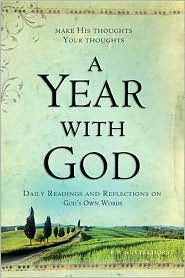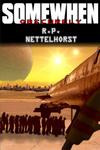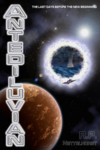I read today that the Pope visited a mosque, specifically the Blue Mosque in Istanbul. Apparently he is much more of a diplomat than I would have been. Me, I would have gone to the Hagia Sophia, which, until the Moslem imperialists conquered Contantinople and renamed it Istambul, was a Christian church. It was converted to a mosque in 1453 by the Moslem invaders, and then subsequently converted into a museum in 1935. I would have walked in, looked around, and made some comment about how the "religion of peace conquered Christian regions, slaughtered the Christians or forced conversions, and then turned their churches into mosques."
The Pope is much nicer than me, apparently.
Interesting how in condemnations of the Crusades no mention is ever made of why they happened.
Thursday, November 30, 2006
Saturday, November 18, 2006
World economic data demonstrates that overall, the world as a whole is doing pretty well. Optimism has data to support it.
Saturday, November 11, 2006
Back in October, 2001 Linda Chavez wrote:
In some sense, from 1683 until the rise of Islamic extremism, we in the west have been living in a time of hudna with Islam. What is hudna? A temporary truce. According to Wikipedia:
Given that those who are not Muslim are said to belong to "the House of War," it needs to be recognized that the fundamentalists will continue to hate us until we either die or join them in the "House of Islam." From their perspective, the Hudna that began when the Moslems were driven from the gates of Vienna has gone on way too long.
For nearly 1,000 years, Europe was under nearly constant siege from Islamic invaders, from the first Moors who conquered Spain in 710 to the last Ottoman attack on Vienna in 1683. So long as the trend within the Moslem world today is toward a fundamentalist interpretation of Islam, the West will continue to face a new threat to its survival.
In some sense, from 1683 until the rise of Islamic extremism, we in the west have been living in a time of hudna with Islam. What is hudna? A temporary truce. According to Wikipedia:
Hudna (هدنة) is an Arabic term meaning "truce" or "armistice" as well as "calm" or "quiet", coming from a verbal root meaning "calm". It is sometimes translated as "cease-fire". In the Lisan al-Arab (Ibn al-Manzur's definitive dictionary of classical Arabic, dating to the 14th century) it is defined as follows:
"hadana: he grew quiet. hadina: he quieted (transitive or intransitive). haadana: he made peace with. The noun from each of these is hudna."
A particularly famous early hudna was the Treaty of Hudaybiyyah between Muhammad and the Quraysh tribe.
According to Umdat as-Salik, a medieval summary of Shafi'i jurisprudence, hudnas with a non-Muslim enemy should be limited to 10 years: "if Muslims are weak, a truce may be made for ten years if necessary, for the Prophet made a truce with the Quraysh for that long, as is related by Abu Dawud" ('Umdat as-Salik, o9.16).
Given that those who are not Muslim are said to belong to "the House of War," it needs to be recognized that the fundamentalists will continue to hate us until we either die or join them in the "House of Islam." From their perspective, the Hudna that began when the Moslems were driven from the gates of Vienna has gone on way too long.
Saturday, November 04, 2006
Orson Scott Card is a science fiction author, most well known for his novel, Ender's Game. An excellent novel, widely recognized as a science fiction classic. If you haven't read it, go get a copy now.
He has an interesting essay that he wrote, The Only Issue This Election Day:
I personally do not fear this or any election, whatever its outcome. I do not fear that somehow Islamic extremists can win. That simply isn't possible. But I do fear that there are many in positions of power that do not recognize the danger Islamic extremism still poses. One would have though that 911 would have been enough. Apparently not. One way or another we will win the conflict; the only question is how much it might cost us, how terrible it might be. For six years or more Churchill warned his compatriots of the danger the Nazis posed. Many opportunities came and went to put them in check. The Nazis ulitmately lost, but the cost of victory against them was far higher than it needed to be. I fear that our victory over Islamic extremism is likely to be very costly. Not because it needs to be, but because we will wait until it is nearly too late to actually do what needs doing.
Those who argue that the extremists hate America because of our policies, because of their poverty, because of our support of Israel are simply ignorant. The reason these evil people hate us, the reason they attack us, is simply because we are not Moslem. Until that simple reality is fully recognized by most, we are going to continue dithering and frittering and fighting amongst ourselves.
He has an interesting essay that he wrote, The Only Issue This Election Day:
There is only one issue in this election that will matter five or ten years from now, and that's the War on Terror....
To all intents and purposes, when the Democratic Party jettisoned Joseph Lieberman over the issue of his support of this war, they kicked me out as well. The party of Harry Truman and Daniel Patrick Moynihan -- the party I joined back in the 1970s -- is dead. Of suicide.
I personally do not fear this or any election, whatever its outcome. I do not fear that somehow Islamic extremists can win. That simply isn't possible. But I do fear that there are many in positions of power that do not recognize the danger Islamic extremism still poses. One would have though that 911 would have been enough. Apparently not. One way or another we will win the conflict; the only question is how much it might cost us, how terrible it might be. For six years or more Churchill warned his compatriots of the danger the Nazis posed. Many opportunities came and went to put them in check. The Nazis ulitmately lost, but the cost of victory against them was far higher than it needed to be. I fear that our victory over Islamic extremism is likely to be very costly. Not because it needs to be, but because we will wait until it is nearly too late to actually do what needs doing.
Those who argue that the extremists hate America because of our policies, because of their poverty, because of our support of Israel are simply ignorant. The reason these evil people hate us, the reason they attack us, is simply because we are not Moslem. Until that simple reality is fully recognized by most, we are going to continue dithering and frittering and fighting amongst ourselves.
Thursday, November 02, 2006
Doomsayers are amusing because we will get to laugh at them eventually. We should, in fact, laugh at them now. They are like the characters in a cartoon walking about with a signboard proclaiming that the world is going to end tomorrow. And of course, tomorrow never seems to come.
We find them in the Christian world all the time, insisting that Armegeddon is upon us and that they know the date that all the awful things are going to happen. They seem to take a perverse delight in repeating all the awful things that are happening in the world, especially if people happen to be dying in the Middle East.
But Christians are not alone in doomsaying. Malthus in the 19th century insisted that we would all starve to death by now thanks to overpopulation. Numberless movies, pundits, politicians and scientists have been predicting disasters ever since. And yet, somehow, remarkably, the disasters predicted--of the human race becoming extinct, overpopulating, overpolluting, dying of epidemics, or whatever--never seem to quite happen.
Now, on MSNBC.com, I read this headline: "Seafood could collapse by 2050, experts warn: Overfishing, pollution, warming are destroying stocks, study finds."
Uh huh. I distrust doomsayers. Historically speaking, all of these sorts of doomsayers have been wrong. Why should I believe them this time?
This time the boy who cried wolf is telling me the truth?
Uh huh.
It's like those who tell me I should panic about global warming. A one degree average increase in world-wide temperatures over the next hundred years is supposed to scare me? When the world has been far warmer in the past?
Uh huh.
I believe these gloomy reports as much as I believe the doom proclaiming sandwhich board guys in long beards in the cartoons. I think they're about as rational.
We find them in the Christian world all the time, insisting that Armegeddon is upon us and that they know the date that all the awful things are going to happen. They seem to take a perverse delight in repeating all the awful things that are happening in the world, especially if people happen to be dying in the Middle East.
But Christians are not alone in doomsaying. Malthus in the 19th century insisted that we would all starve to death by now thanks to overpopulation. Numberless movies, pundits, politicians and scientists have been predicting disasters ever since. And yet, somehow, remarkably, the disasters predicted--of the human race becoming extinct, overpopulating, overpolluting, dying of epidemics, or whatever--never seem to quite happen.
Now, on MSNBC.com, I read this headline: "Seafood could collapse by 2050, experts warn: Overfishing, pollution, warming are destroying stocks, study finds."
Uh huh. I distrust doomsayers. Historically speaking, all of these sorts of doomsayers have been wrong. Why should I believe them this time?
This time the boy who cried wolf is telling me the truth?
Uh huh.
It's like those who tell me I should panic about global warming. A one degree average increase in world-wide temperatures over the next hundred years is supposed to scare me? When the world has been far warmer in the past?
Uh huh.
I believe these gloomy reports as much as I believe the doom proclaiming sandwhich board guys in long beards in the cartoons. I think they're about as rational.
Subscribe to:
Posts (Atom)





